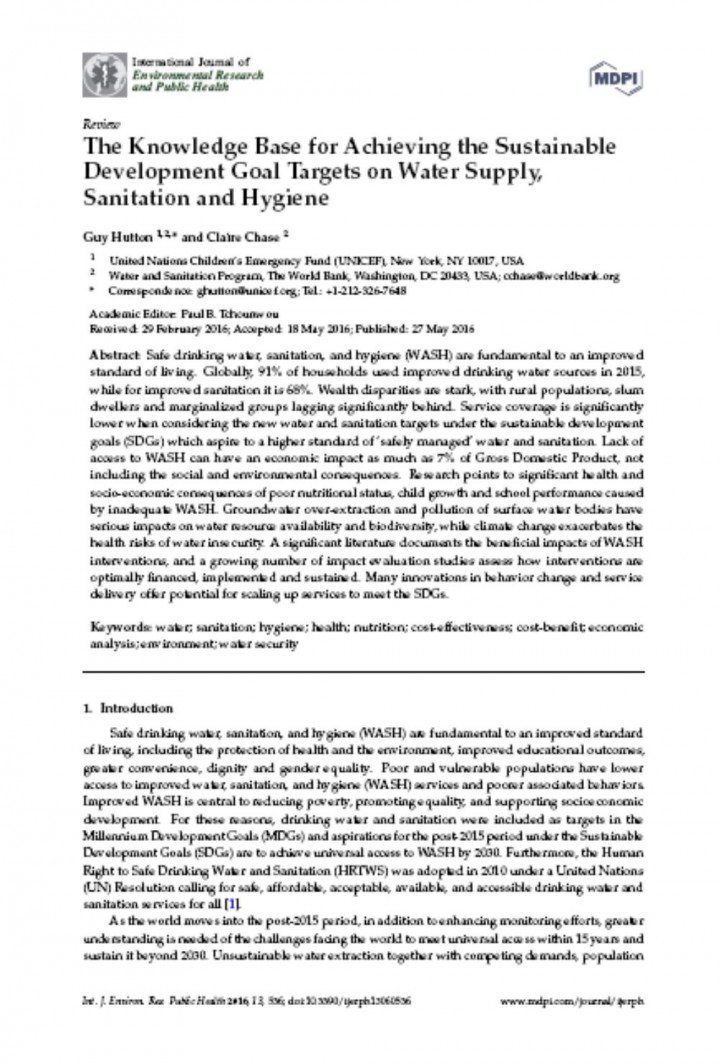The Knowledge Base for Achieving the Sustainable Development Goal Targets on Water Supply, Sanitation and Hygiene
Hutton, G., Chase, C. (2016)

Published in: 2016
Pages: 35
Publisher:
International Journal of Environmental Research and Public Health
Author:
Hutton, G., Chase, C.
Uploaded by:
SuSanA Admin
Partner profile:
common upload
3437 Views
44 Downloads
Safe drinking water, sanitation, and hygiene (WASH) are fundamental to an improved standard of living. Globally, 91% of households used improved drinking water sources in 2015, while for improved sanitation it is 68%. Wealth disparities are stark, with rural populations, slum dwellers and marginalized groups lagging significantly behind. Service coverage is significantly lower when considering the new water and sanitation targets under the sustainable development goals (SDGs) which aspire to a higher standard of ‘safely managed’ water and sanitation. Lack of access to WASH can have an economic impact as much as 7% of Gross Domestic Product, not including the social and environmental consequences. Research points to significant health and socio-economic consequences of poor nutritional status, child growth and school performance caused by inadequate WASH. Groundwater over-extraction and pollution of surface water bodies have serious impacts on water resource availability and biodiversity, while climate change exacerbates the health risks of water insecurity. A significant literature documents the beneficial impacts of WASH interventions, and a growing number of impact evaluation studies assess how interventions are optimally financed, implemented and sustained. Many innovations in behavior change and service delivery offer potential for scaling up services to meet the SDGs.
Bibliographic information
Hutton, G., Chase, C. (2016). The Knowledge Base for Achieving the Sustainable Development Goal Targets on Water Supply, Sanitation and Hygiene. International Journal of Environmental Research and Public Health
Filter tags
English















